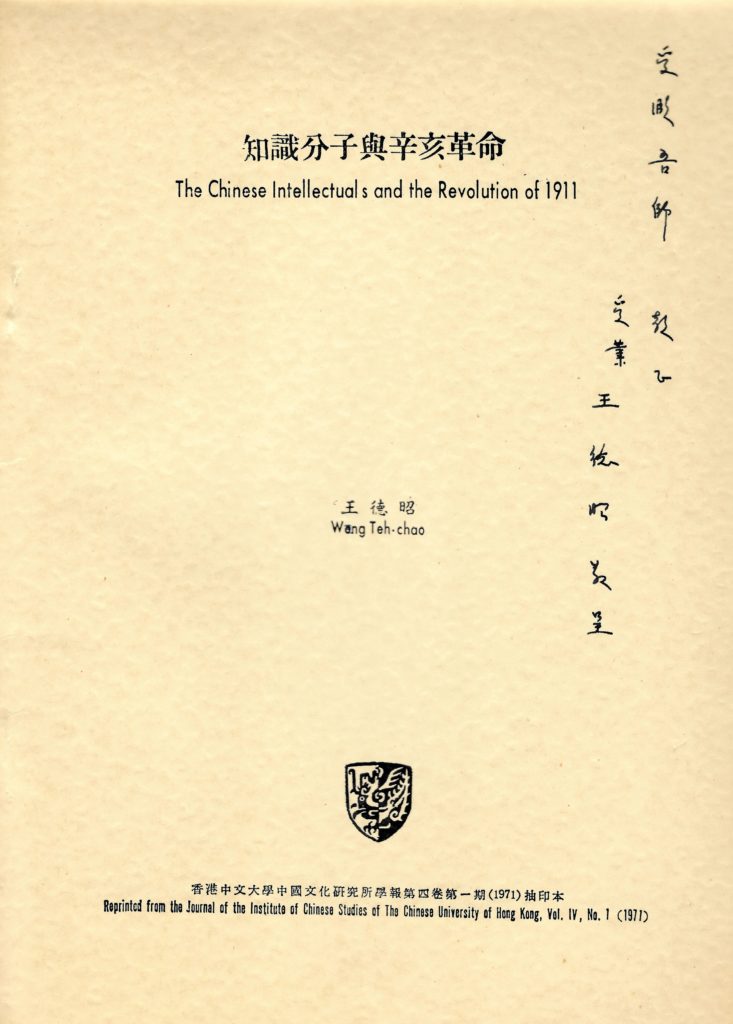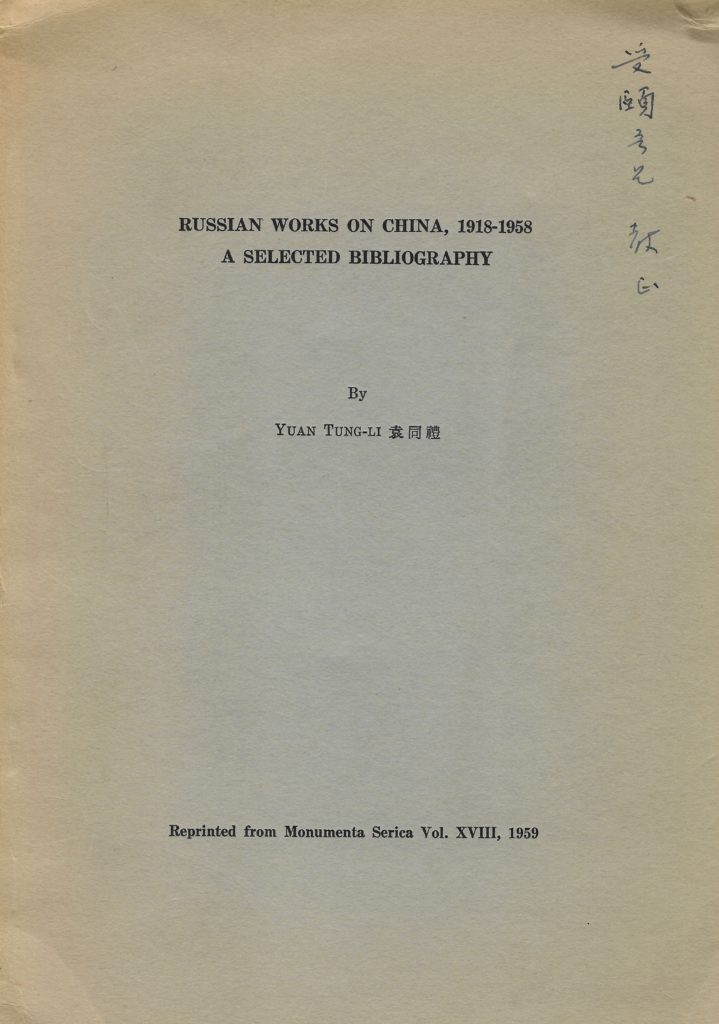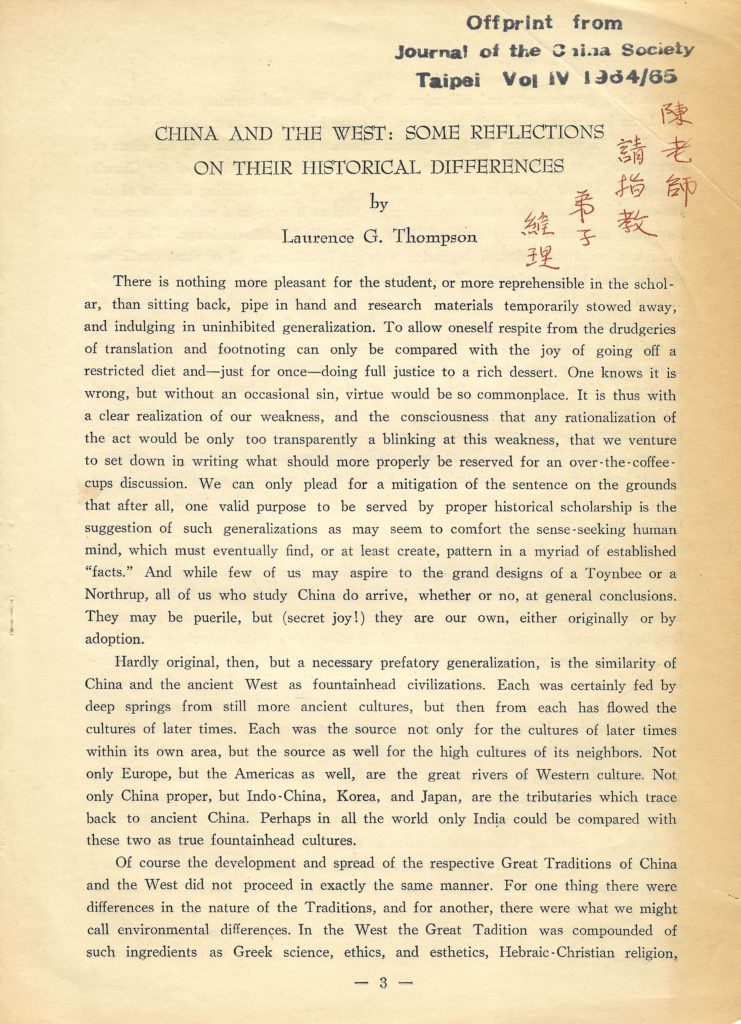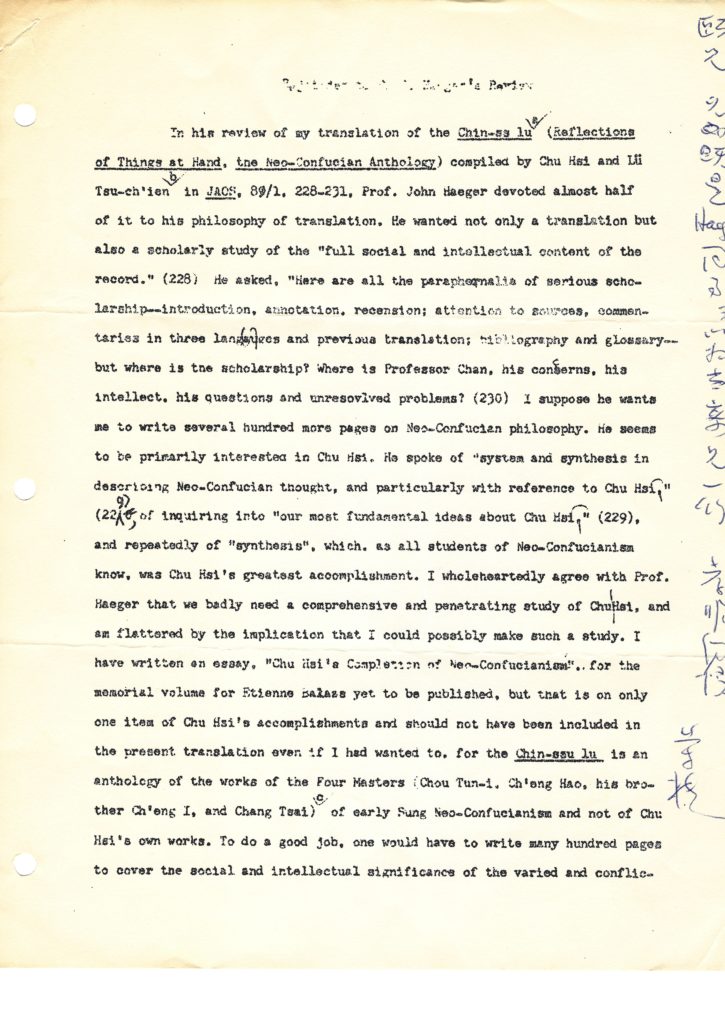This week I input two boxes of offprints, booklets, and other academic publications written by Ch’en Shou-yi and other scholars into the online archive. As a scholar who studied the East-West exchange, Ch’en’s collections of academic works covered history, literature, archaeology, religion, and linguistic on China. Most of the academic works were written in English and Chinese, and published from 1870s to 1970s. These offprints and other academic publications crossing one century preserved research values apart from the contents.
First, according to the publication date, I can imagine scholars in different eras had different research focuses. From 1871 to 1920, most offprints, excerpts, and other academic works were written by Christian intellectuals, who were also priests in China. Christian intellectuals studied Chinese language such as the Mandarin romanization, philosophy such as Confucianism, and Chinese culture and tradition like the festivals, trying to understand China and better introduce Christianity. After the Chinese Civil War in 1949, publications in Taiwan and on Taiwan became prosperous. Many scholars explored the history of Taiwan in diaspora history and global communication, and reviewed the ideologies and revolutions in modern China. Maybe these works reflect the Chinese intellectuals’ focus with the Kuomintang retreated to Taiwan.
Second, if we link many of those authors with Ch’en’s correspondence, which I will post in the future weeks, we can clearly see the friendship between Ch’en and those authors, who are famous modern Chinese intellectuals. I made a rough statistic to recover Ch’en’s academic circle. I have input 196 academic works written by 101 authors. 4 authors stayed in China Mainland such as Luo Changpei (羅常培), one of the founders of Chinese linguistic. 1/3 of the authors including Ch’en Shou-yi came to the United States and became Chinese-American scholars such as Yuen Ren Chao (趙元任), another founder of Chinese linguistic, Chan Wing-tsit (陳榮捷), Ch’en Shou-yi’s alumnae in Lingnan University and colleague in University of Hawaii as well as famous historian, Wu Hsiang-hsiang (吳相湘), historian focusing on biography research, and Tung-Li Yuan (袁同禮), father of Chinese library studies. 1/10 of the authors went to Taiwan, making contributions to the Taiwan colleges and Academia Sinica, including Han-sheng Chuan (全漢昇), historian of the history of Chinese economics, Li Chi (李濟), father of Chinese archaeology, T. F. Tsiang (蔣廷黻), historian and Chinese ambassador in the US, and Yao Ts’ung-wu (姚從吾), historian and Ch’en’s colleague in Peking University. The other global scholars came from the Netherlands, Japan, France, and the United States, contributing insights to Chinese studies.
In the end, the compliments and comments written by the authors also provided valuable information to recover Ch’en’s academic circle. Ch’en’s younger brother, Stanley H. Chan (陳受康), a law scholar, contributed one article on law. Nine scholars viewed Ch’en as a faithful friend including Chan Wing-tsit (陳榮捷), who sent Ch’en 12 papers. Almost 20 authors were Ch’en’s students, who also maintained correspondence with Ch’en. Wen-Djang Chu (朱文長) in Singapore, Wang Teh-chao (王德昭) in Hong Kong, Laurence G. Thompson (譚維理) in California, were not only outstanding scholars, but also improved Chinese studies teaching after consulting with their teacher, Ch’en.



